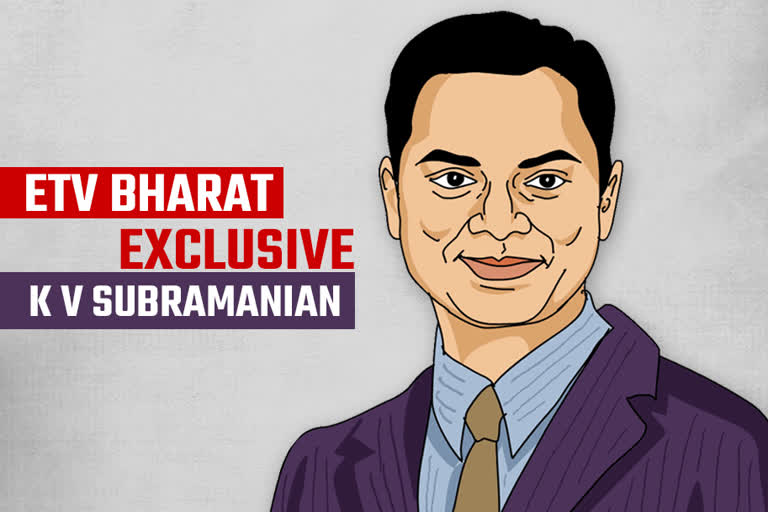New Delhi: Chief Economic Advisor Krishnamurthy Subramanian has strongly defended the substantive relief given to the corporate sector in this year’s budget arguing that it is necessary for kick-starting the virtuous cycle of private investment.
He said it will eventually pave the way for higher growth rate as abolition of taxes like dividend distribution tax (DDT) will correct the distortion in the country's tax regime which discouraged sovereign wealth funds and pension funds from investing in India.
“When you take the dividend distribution tax then the fact is that it’s going to be taxed in the hands of investors and not the corporate. It’s quite important, as you have pension funds, insurance companies, sovereign wealth funds which are usually not taxed in their jurisdictions,” said Chief Economic Advisor Krishnamurthy Subramanian.
“When the DDT was charged on corporates then these entities had to pay taxes even though they are not taxable,” he told ETV Bharat in an exclusive interaction in New Delhi while explaining the rationale behind cutting the Corporation Tax last year and abolition of DDT in the Union budget.
In her second budget, Finance Minister Nirmala Sitharaman abolished the dividend distribution tax, this is the second booster shot given to industry by Prime Minister Narendra Modi’s government in the last six months.
In September last year, Sitharaman had announced the biggest cut in Corporation Tax in recent times to encourage the private sector to increase the investment as the GDP growth declined to just 5% in the first quarter of FY 2019-20.
Read more:Govt very transparent in setting new fiscal deficit target: Nirmala Sitharaman
In the economic survey presented last week, Krishnamurthy Subramanian underscored the need to encourage private investment. By giving the year-wise data of investment and its relation with GDP growth rate, he argued that private investment peaked in 2013 and it sustained economic growth for the next four years, till 2017.
He said private investment began to decline from 2014-15 onwards and it resulted in an economic slowdown after four years, from FY 2018-19.
Outlining the government’s strategy to attract the massive amount of money available with sovereign wealth funds and pension funds, he said the abolition of DDT will attract these funds here and it will deepen the country’s bond market.
While talking about the benefits of the abolition of dividend distribution tax for the potential investors, Krishnamurthy Subramanian said: “The actual returns that these entities get has now been enhanced significantly. As a result, the equity capital, especially long term equity capital, which these pension companies and sovereign wealth funds will bring, has really been encouraged.”
“This is really critical if India has to become part of bond indices,” explained the top economic advisor to the Union government, adding that by participating in the bond indices, India can actually get several tens of billions of dollars in bond market from the sovereign wealth funds that have investment of several trillions of dollars with them.



